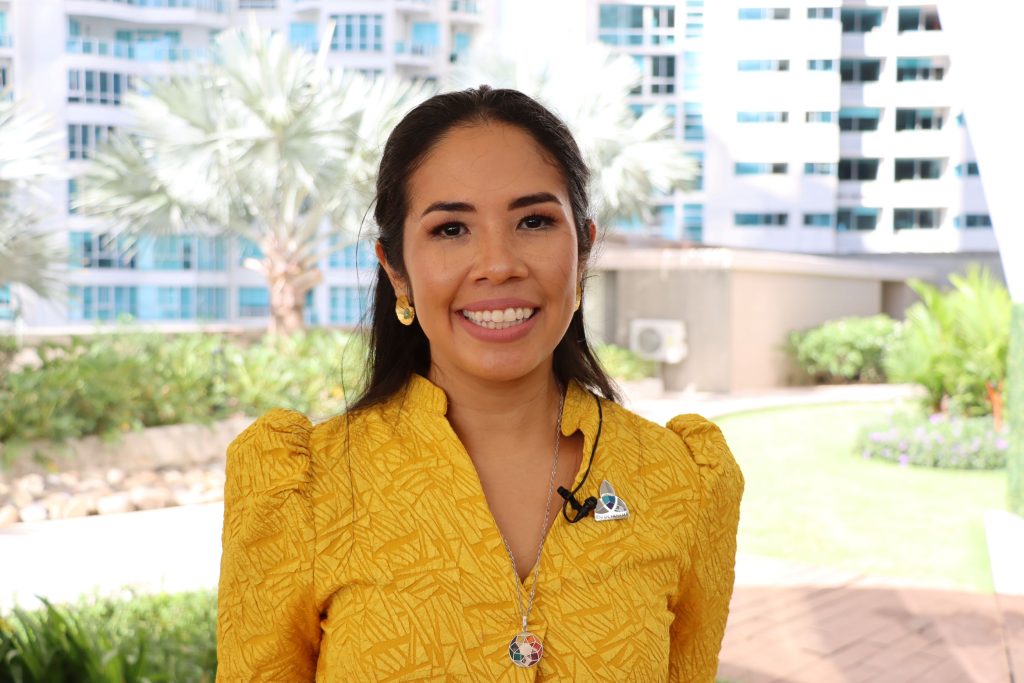Coordination

Ernest Bladé i Castellet (director)
Doctor in Ingeniería de Caminos, Canales y Puertos, full professor at Universitat Politècnica de Catalunya (UPC) and director of the Flumen Institut.
Ernest has dedicated his academic career to the research of hydrology, hydraulics, sediment transport and river dynamics, beside being one the creator of the two-dimensional hydraulic model for the simulation of free surface flow in rivers and estuaries, Iber.
Ernest has participated in numerous projects and research studies in the domain of hydrology, hydraulics, river dynamics, sediment transport, dam management, urban hydrology, etc.

Gonzalo Olivares Cerpa (coordinator)
Doctor in Civil Engineering at Universitat Politècnica de Catalunya (UPC), par time professor and researcher at the Flumen Institut.
Gonzalo has dedicated his academic career to the research of hydrology, climate change, GIS tools and data management.
Gonzalo has participated in numerous education programs (HydroEurope, HydroLatinAmerica, etc.), projects and research studies in the domain of hydrology, hydraulic (river dynamics, dam management, sediment transport, etc) and Climate Change.
In memoriam
Manuel Gómez Valentín (1960–2023)
Doctor in Ingeniería de Caminos, Canales y Puertos and full professor of hydraulics and hydrology at Universitat Politècnica de Catalunya. Former coordinator and creator of HydroLatinAmerica
During his academic career, Manuel focused his research in urban hydrology and hydraulics structures, being part of numerous projects and researches in Barcelona, Spain and Europe.
‘Manolo’, as a dedicated teacher, was always keen on passing all his knowledge and experience into new generations of engineers.
HydroLatinAmerica reminds as a perfect example of his dedication and compromise with the teaching and the spread of knowledge beyond the limits of academic institutions.
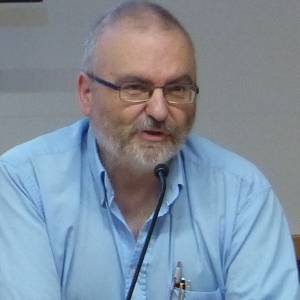
Academic tutors from partner's universities

José Luis Macor
Full Professor at the Faculty of Engineering and Water Sciences at the National University of the Litoral (UNL), Argentina. He has a master’s degree in Water Resources Engineering and a Ph.D. in Environmental Sciences and Techniques focused on the development of rainfall forecasting techniques based on the multi-scalar properties of weather radar data.
He is a professor in the undergraduate courses of Surface Hydrology and Urban Drainage and participates in postgraduate academic programs (Master’s and Doctorate).
He is currently Director of the UNL Meteorological Information Center and Head of FICH postgraduate Programs.
He has participated and directed various research projects funded by the National Agency for Scientific and Technological Promotion and the UNL in the fields of hydrology, hydrometeorology, hydraulics, urban drainage, climate change, among others.

Marcelo Gomes Miguez
Professor at the Federal University of Rio de Janeiro (UFRJ) since 1998. He holds a degree and a D.Sc. in Civil Engineering. His doctoral thesis introduced a mathematical model for simulating urban floods, known as MODCEL. In his academic work, he conducts research in national projects and international collaborations focusing on flood diagnostics, fluvial hydraulics, urban hydrology, design of sustainable urban drainage systems, using gray, green, and blue infrastructure, computational hydraulic modeling, among other topics.
He served as a member of the Brazilian Commission for UNESCO International Hydrological Programs (COBRAPHI) from 2011 to 2014. He is a member of the Urban Water group of UNESCO-Latin America and the Caribbean and also acts as one of the coordinators of the UNESCO Chair on “Urban Drainage in Coastal Lowland Regions”, at UFRJ, jointly involving the Polytechnic School, the Faculty of Architecture and Urbanism, and COPPE.

Melquisedec Cortés Zambrano
Full Professor at the Faculty of Civil Engineering, Universidad Militar Nueva Granada, Colombia. He holds a master’s degree in Civil Engineering with an emphasis on Sustainable Management of Water Resources and Hydroinformatics from the University of the Andes, and a Ph.D. in Engineering focused on the Design and Evaluation of Sewer System Degradation under the influence of biogenic sulfuric acid.
He has taught and conducted research at several Colombian universities, specializing in water resources, hydraulics, materials, and numerical modeling. His main interests include hydraulics, hydrodynamics, computational fluid dynamics, degradation, and scouring in drainage systems. Passionate about fieldwork, he has studied major drainage systems in various cities and advised numerous undergraduate, master’s, and doctoral projects.
His work has provided a deep understanding of water use, availability, and management issues. His primary goal is to contribute to sanitation and sustainability by implementing tools that prioritize decision-making.
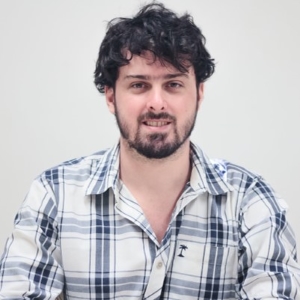
Osvaldo Moura Rezende
Adjunct Professor of the Department of Water Resources and Environment of the Polytechnic School of the Federal University of Rio de Janeiro – DRHIMA-POLI/UFRJ, permanent professor of the Postgraduate Program in Environmental Engineering of the Polytechnic School and School of Chemistry (PEA-POLI-EQ/UFRJ, and permanent Professor of the Professional Master’s in Landscape Architecture of the Postgraduate Program in Urbanism of UFRJ – PROURB/UFRJ. He is a collaborating professor of the specialization course in Ecological Landscaping of PUC-Rio, teaching the disciplines of Hydrology and Stormwater Management.
Civil Engineer ( POLI/UFRJ, 2007), M.Sc. in Civil Engineering, Area of Water Resources and Environment (COPPE/UFRJ, 2010) and Specialist in Urban Engineering (POLI/UFRJ, 2010). D.Sc. in Civil Engineering, area of Water Resources and Sanitation (COPPE/UFRJ, 2018).
He works in the areas of flood risk management, sanitation, and water resources, developing studies and projects of computational mathematical modeling for the simulation of floods in urban and rural basins. Currently, he participates in studies involving territorial planning for the construction of resilient cities.
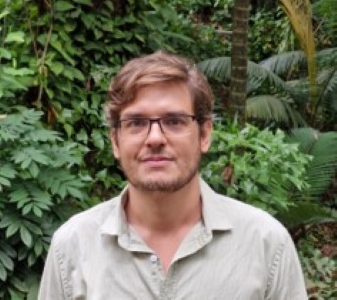
Antonio Krishnamurti Beleño
Professor at the Department of Civil and Environmental Engineering at the Pontifícia Universidade Católica do Rio de Janeiro (PUC-Rio) and coordinator of the Professional Master’s Program in Urban and Environmental Engineering in the same department.
Civil Engineer focused on Water Resources and Environment, graduated from the Escola Politécnica da Universidade Federal do Rio de Janeiro. DSc in Civil Engineering with a concentration in Water Resources and Environment, subfield of Water Resources/Environmental Modeling, from the Civil Engineering Program at COPPE/UFRJ.
He is a permanent faculty member of the Post-Graduate Program in Civil Engineering at PUC-Rio, where he serves as deputy coordinator. In the Post-Graduate Program in Civil Engineering, he is involved in the research lines of Environmental Technologies and Project Methodologies in Engineering. Co-founder of the Laboratory of Project Methodologies in Engineering (LAMPRO) at PUC-Rio, where research and projects are developed on various topics such as project automation using artificial intelligence, Building Information Modeling (BIM), socio-natural disasters, hydraulic and environmental modeling, ecological and landscape restoration and environmental sanitation.
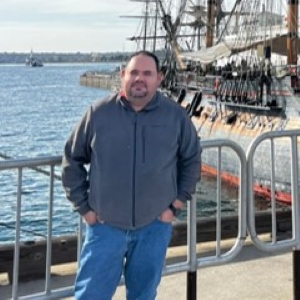
David Clemente López
Full Time Professor Facultad de Ingeniería Civil de la Universidad Autónoma de Nuevo León. Civil Engineer with a Master’s degree in Science (Environmental Engineering) and a PhD in progress (Project Management). Over 15 years of experience in hydrological and hydraulic projects in Mexico, Latin America, and the United States. Currently, Head of the Hydraulics Department at the Institute of Civil Engineering. https://iic.uanl.mx/hidraulica/
Level I Expert in Hydrology and Hydraulics. Professor in the hydraulics department, teaching courses on Channel Hydraulics, Sewer System Design, and Specialized Software in Hydrology and Hydraulics.
My research focuses on the application of advanced modeling and analysis techniques to address challenges in hydraulic engineering. My main interests include hydrological risk assessment, sustainable urban drainage system design, integrated water resources management, and the application of artificial intelligence in hydraulic engineering. I seek innovative and sustainable solutions to water challenges through interdisciplinary research and collaboration.

Esteban Sánchez Cordero
Doctor in Civil Engineering from Universitat Politècnica de Catalunya (UPC), full professor at the Universidad de Cuenca, where he also directs the Department of Civil Engineering. (https://www2.ucuenca.edu.ec/dic)
Esteban has devoted his academic career to researching river hydraulics, sediment transport, and urban hydrology. He has actively engaged in various education programs (both master’s and doctoral) and research projects spanning the fields of hydraulics, river dynamics, hydrology, sediment transport, urban hydrology, and climate change, among others.
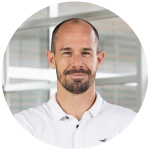
Morgan Abily
Associate Professor in Hydraulics at Université Côte d’Azur, affiliated with CNRS, Observatoire de la Côte d’Azur, IRD, and the Géoazur research group. He leads research projects in hydraulic modeling and hydroinformatics as a permanent member of the RISQUES team within the Géoazur laboratory. https://www.oca.eu/fr/membres-equipe-risques-geoazur. Over the past 15 years, his research has focused on flood risk assessment and water resource management. His current work with water utilities supports the development and enhancement of decision support systems at the watershed scale. Key topics include improved representation of physical processes in deterministic models (e.g., river–groundwater intermittent connectivity), integration of remote sensing data for assimilation in hydrological modeling, and strategic planning for water reuse and sustainable urban drainage system (SUDS) modeling.
He directs the Master’s program HYDROPROTECH at the University of Côte d’Azur, a high-level training program aimed at developing experts capable of designing, managing, and evaluating projects in the field of hydrotechnology and the environment. In 2024, The HYDROPROTECH MSc. is the first program to receive the prestigious label for water training and education from the IAHR &UNESCO Intergovernmental Hydrological Program.
https://univ-cotedazur.fr/formation/offre-de-formation/parcours-gestion-de-projets-hydrotechnologie-et-environnementaux-hydroprotech
